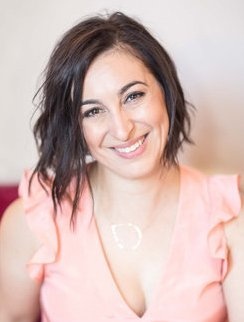Columbia College | Columbia University in the City of New York
“Reading, Writing and … Not Much Else,” by Miriam Parker ’00
I’m really good at reading. I know that sounds like a weird thing to brag about. And I know that everyone who went to Columbia probably feels like they’re good at reading. We started young and kept going. We aced the verbal part of the SAT. We spent a year in Lit Hum. I know I’m not the only one who read five books a week throughout college. The problem with me is that I liked reading five books a week. That was a good pace for me. So I decided to continue it — for the rest of my life.
Almost exactly nineteen years ago, I was graduating from the College and wondering what to do with the gaping hole that was the next 50 years. It was the end of the beginning of the first internet boom and like many soon-to-be-college grads back then, I was good at coding websites. I got a job offer from an internet startup, but decided to go with the lower-paying but seemingly more stable job as a web producer for a book publisher. My job was to update the company website and compile a monthly newsletter about its fiction and children’s books; I also built and updated author websites. It evolved into social media, general marketing and more, and I’ve worked in book publishing ever since. My first day at work, a pile of bound galleys were dropped on my desk and I was told I had to read them before upcoming meetings with authors. Homework? Yes, ma’am, I am good at getting A’s. This was a job I could dig my teeth into.
Somewhere along the way though, reading wasn’t quite enough — I had the chutzpah to think that I could write as well. I do often tell people that the best way to write a book is to read a huge number of them. It helps you internalize how books work, how they are structured, where chapters naturally begin and end, and to become a better storyteller. When people tell me they want to be a writer and then tell me they don’t read, it’s an instant red flag. It’s fine not to be a reader, but it’s not a good idea to be a writer who doesn’t read. I passed my own test though. As a good reader, wouldn’t I also be a good writer?
The problem with writing is that even with the best background in the world — a mostly comprehensive knowledge of contemporary fiction (and nonfiction! I read that, too!) — it’s really, really hard. I got an M.F.A. in fine arts in fiction and wrote my first novel in 2005, my second in 2007 and my third in 2010, and started my fourth in 2014. It was that fourth novel that was accepted by Dutton Books and published in hardcover in 2018. I’m now working on my second book with Dutton, and that, too, hasn’t been an easy road. I started writing it in 2016 and as of the writing of this essay, it’s not even close to done.
The thing about things being hard is that it makes you feel insecure, especially when there are other things in your life that you are naturally good at. I only have an hour or so a day to devote to novel writing, and it is an hour when most people are not awake. But that’s the only way to get a book written if you have a full-time job that also requires socializing, as well as have friends and family. And I will admit that when writing gets hard, I default to reading. I remain, at my core, very good at reading. And still, even with four and a half books under my belt, just kind of OK at writing.
In his masterful book On Writing, Stephen King says that writing is the only form of ESP that he knows of — the only way that he, as a writer, can get into the head of me, as a reader. What a powerful statement that is! It’s something I think about all the time when I’m reading and I’m truly carried away by a book. And when you read some of the best writers in the world, like King, they do get in your brain. It’s also, weirdly, true about writing. When the story is flowing so that it almost bypasses your active brain and the ESP is happening between your subconscious mind and the words coming up on the screen, that’s when the magic happens.
Nineteen years into my career as a publisher and one year into my career as a professional writer, I can honestly say that I still prefer reading to writing. But writing does provide that little element of wonder, of other-worldliness, that nothing else can really do. And I guess that’s why I keep at it even though it is the hardest thing I’ve ever attempted.


